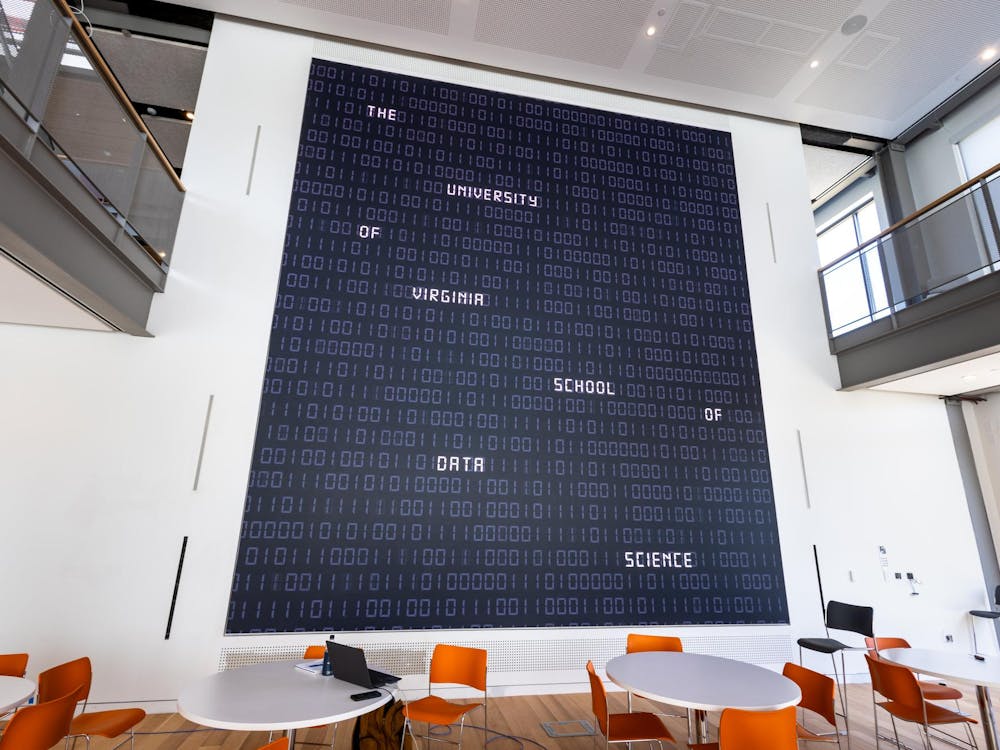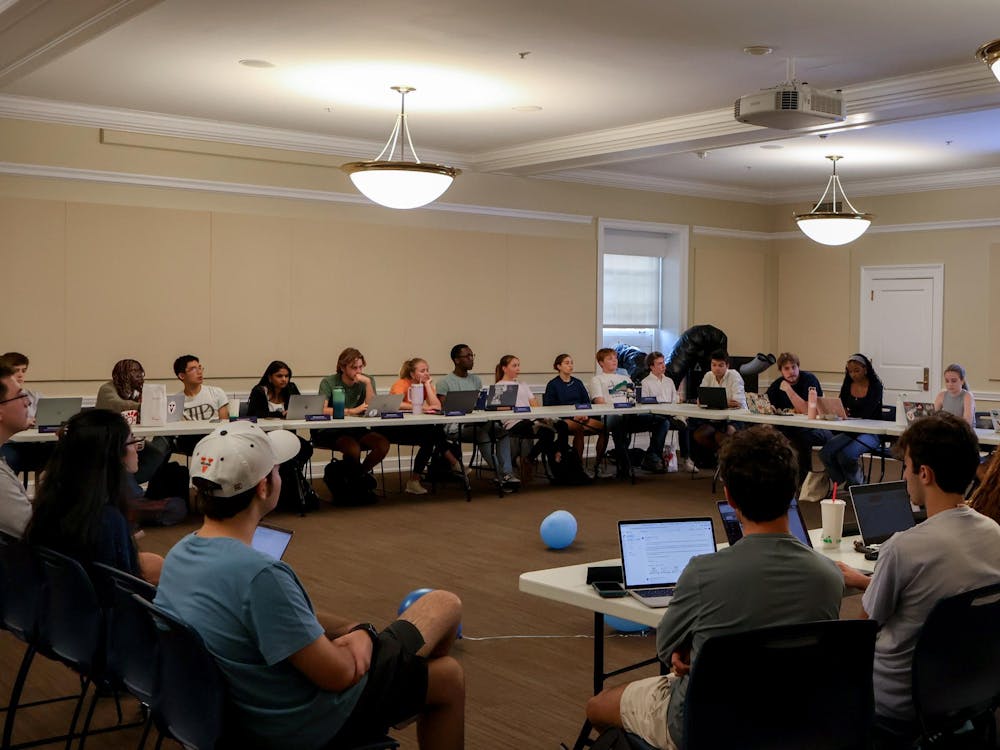According to national crime victimization statistics, a woman in the United States is 10 times more likely to be raped than to die in a car crash. Women between the ages of 16 and 24 are by far the most likely age group to be raped. Twenty-eight percent of women in college have experienced rape or attempted rape by the time they graduate.
With sexual assault awareness week quickly approaching, many University groups hope to bring these statistics, and the availability of women's health and sexual assault response resources on Grounds, to the forefront of student consciousness.
The 2002 Joint Commission on Accreditation of Healthcare Organizations evaluation of the University's Department of Student Health ranked the University as one of the best student health care providers nationally. Student Health received a 99 out of 100 score.
The JCAHO score includes all aspects of Student Health, and women's health availability is one factor considered in the score.
Student Health Gynecology currently staffs only one OB/GYN, Christine Pederson. Pederson, the clinic director and consulting physician, does not see students on an everyday basis. Five nurse practitioners, one triage nurse and medical students in rotation deal with regular student concerns.
The student health insurance offered through the University, the Chickering Group, provides a generic and nongeneric copayment plan for medications, including emergency contraception such as Plan B. It covers 100 percent of the cost of any laboratory or diagnostic tests ordered through Student Health. As such, it does not fully cover medical treatment for sexual assault victims, such as forensic evidence collection, emergency contraception and prophylactic treatment for sexually transmitted infections. The University does not provide forensic evidence collection.
This is not peculiar to the University, but is rather indicative of a larger trend in women's health resources at four-year public universities in the United States. Of four national public universities compared by The Cavalier Daily
- the University, the University of Nebraska-Omaha, the University of Oregon and the University of Alabama-Tuscaloosa
-- all provide some form of specialized medical care for women. Yet none staffs a full-time OB/GYN who sees patients on an everyday basis. No university health system considered has a Sexual Assault Nurse Examiner program to provide immediate medical response to sexual assault, such as forensic evidence collection, prophylactic treatment for STIs including HIV and emergency contraception.
The University, like many other institutions, sends students who seek these services to local emergency rooms in order to give them access to specialized nurses in the SANE program.
"There's no margin of error, they need to be handled right the first time. The nurses who do that need to be trained for that step-by-step, and we're not trained to do that," said Marcia Adler of the University of Nebraska-Omaha Student Health.
"Most women who are raped do not seek medical attention in that initial 72-hour time period," when evidence collection is possible, said Claire Kaplan, Coordinator of the Sexual Assault Education Office of the University of Virginia Women's Center.
For whatever reason, medical sexual assault response is by protocol not handled within university health systems. What then are the financial implications for students seeking outside medical care?
"If you have the resources, you're generally in good shape. For students who have limited resources, there's a problem," Kaplan said.
Noting the current scarcity of financial resources in the midst of the statewide budget cuts, she added "it's not likely that there are going to be more added on."
While "it's certainly worth raising the question, 'Why is there only one M.D. over in GYN?'" the nurse practitioners usually can take care of routine women's health concerns, Kaplan said. "The people who are there are very good, but they are definitely short of nurses."
Still, JCAHO emphasized the stringent standards to which Student Health had to adhere in order to receive its high score.
"A 99 demonstrates almost perfect compliance with all standards and a commitment to quality and safety," said JCAHO Spokesman Mark Forstueger. "Comprehensive work with regard to emergency management and community collaborative activities is excellent."
Kaplan noted that future change in women's health services remains possible, citing a student-led initiative in 2001 that led the University's health insurance plan to cover contraceptives.
She added that if students organized for the development of women's health resources, "it would be attended to in one way or another."
*A resource and contact list of some of the many women's health contacts available on and around Grounds.
-University of Virginia Women's Center: Located at 14th street and Main Street, the Women's Center is staffed by four full-time faculty, a full-time office manager as well as student and community volunteer staff. The center provides a wide variety of support and counseling programs; mentoring programs to middle-school girls, women of color, first years and people interested in publishing; information and library resources; sexual assault education; and outreach to students, faculty, staff and alumni at the University and to the Charlottesville-Albemarle community. 434-982-2361
-Student Health: On call nurses available for a variety of general health needs and educational information. 434-924-5362
-Sexual Assault Resource Agency (S.A.R.A): SARA is dedicated to reducing vulnerability to sexual assault, and to facilitating the recovery of sexual assault victims. Services include: an educational and training program, crisis intervention, support groups, legal advocacy and counseling for victims, their families and friends. Office: 434-295-7273 Hotline: 434-977-7273
-Shelter for Help in Emergency (S.H.E.): The Shelter for Help in Emergency is committed to providing a safe, supportive, confidential and respectful environment in which survivors of domestic violence are empowered with the knowledge of personal and community resources as well as the skills needed to make informed decisions for themselves and their families 434-293-8509
-Charlottesville Pregnancy Center: The Charlottesville Pregnancy Center is open to women who are pregnant in difficult circumstances. They offer free counseling and information on all options and alternatives, as well as medical referrals, labor coaching and support groups. 434-979-8888
-FOCUS Women's Resource Center: FOCUS Women's Resource Center is dedicated to providing support for women and their families and to assist them in exploring, developing, and achieving their full potential. Their programs include: counseling, job training and placement, mediation, and career development through community outreach.434-293-2222
-Virginians Aligned Against Sexual Assault: VAASA is the Virginia Coalition of Sexual Assault Crisis Centers. This group works on behalf of victims of sexual assault to foster social change toward the elimination of sexual assault in the Commonwealth of Virginia.804-979-9002






